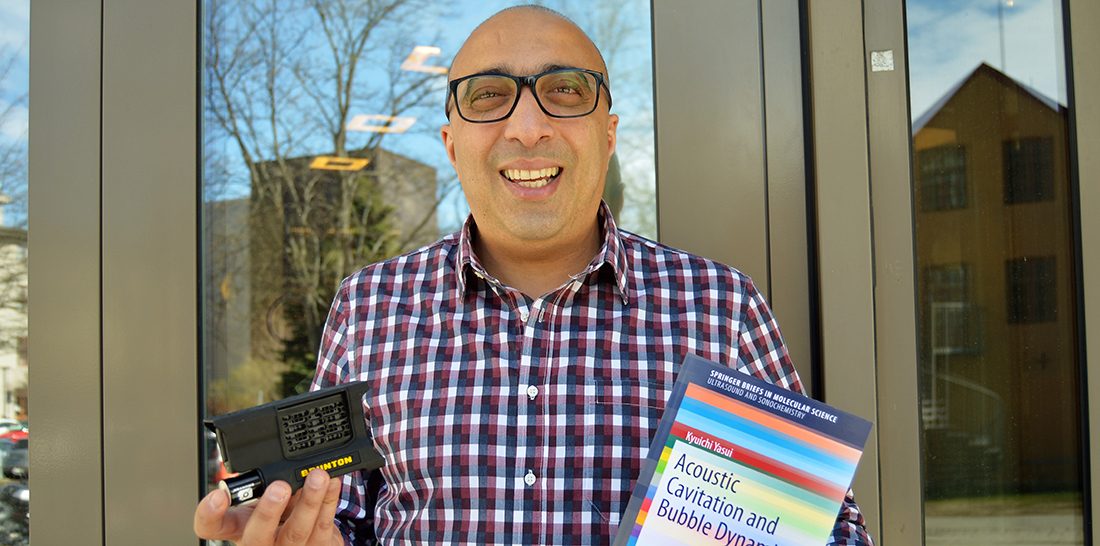Sound can make hydrogen and fuel cell systems more effective
Fuel cells used for hydrogen cars are expensive to use because they contain large quantities of the precious metal, platinum.
Researchers at NTNU (Norwegian University of Science and Technology) are studying new methods of making fuel cells and hydrogen production more effective and less expensive. They are for example, testing non-precious metals to replace platinum in the laboratories.
Professor Bruno G. Pollet is also doing active research on the application of ultrasound to produce hydrogen and fuel cell materials more effectively.
“The use of an ultrasonic wave in a water electrolytic cell helps in producing hydrogen more effectively and in larger quantities” says Pollet.
“Hydrogen gives us a very clean form of energy, and it’s important to find ways to make it more affordable and more effective. Platinum in today’s fuel cell market costs around 300 NOK per gram, and it’s not really a realistic option for a hydrogen fuel cell car at the moment.
That’s why we are looking at other options. Besides being a very clean fuel, it’s also very quick to refuel. It only takes a couple of minutes!”
There is a “but” about the cleanliness of hydrogen, though: It must be produced in a sustainable and clean way.
At the moment, there are only a few refueling stations for hydrogen. There is one in the Trondheim area, at Tiller.
“So, the hydrogen infrastructure for refueling must be developed as well”.
The NTNU Professor is optimistic regarding hydrogen as future fuel for cars.
He is one of the chairs for the International Hydrogen Fuel Conference in Trondheim14-15 May, where 180 international researchers on the hydrogen fuel cell field are gathering to share their important research. NTNU is hosting the conference together with SINTEF.




